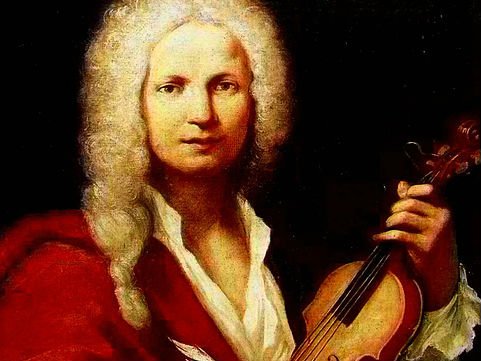
In the 18th century, travelers came from all over Europe to hear Anna Maria and Chiara perform in Venice. Neither attained the wealth or the immortal fame of someone like Paganini, but composers sought them out to write music for them.
Anna Maria and Chiara were two of Antonio Vivaldi’s greatest students. They were orphans at the Ospedale della Pietà in Venice -- an orphanage established by the wealthy ruling class with the aim of raising girls who would be useful to society from a practical or artistic point of view. Vivaldi served as music director there from 1703-1715 and again from 1723-1740. In those years he wrote hundreds of pieces for the all-female orchestra and choir.
Like most infants left at the Pietà, Anna Maria had no last name. She had been passed through a secret opening large enough only to fit a child in 1696. The orphanage named her Anna Maria dal Violin. And under the instruction of composer-in-residence Vivaldi she became one of the most celebrated violinists of her time.
Vivaldi wrote at least 28 concertos just for her. “Six Violin Concertos for Anna Maria,” a disc by violinist Federico Guglielmo, features the highlights.
Anna Maria never left the Ospedale. While her Saturday and Sunday performances with the orchestra of the Pietà became a popular tourist draw, she never traveled to perform or became well-known outside of Italy. However, her legacy lived on in the violinists she taught, including another orphan named Chiara. (Again, no last name).
Chiara drew the praise of not only an older Vivaldi but also Giovanni Porta, Antonio Martinelli and other leading Italian composers of the day. A new CD by the Baroque ensemble Europa Galante, “The Diary of Chiara,” features music written for her.
The nine pieces by seven composers offer a fascinating look into the importance Chiara and the girls of La Pieta played in the musical life of Northern Italy in the mid-1770s.
This CD has been years in the making because the manuscripts found in Chiara’s diary were incomplete. Most had a first violin part but no manuscript for the whole orchestra. Italian musicologists spent years cataloging these pieces and cross-referencing them with other known manuscripts of the same pieces. The results are 'new' pieces by Vivaldi and others -- some strongly written and delightful, others not so much.
But more importantly, it’s a glimpse into a little-known part of Venice’s history and Vivaldi’s other great legacy: the virtuosic women performers he trained.









